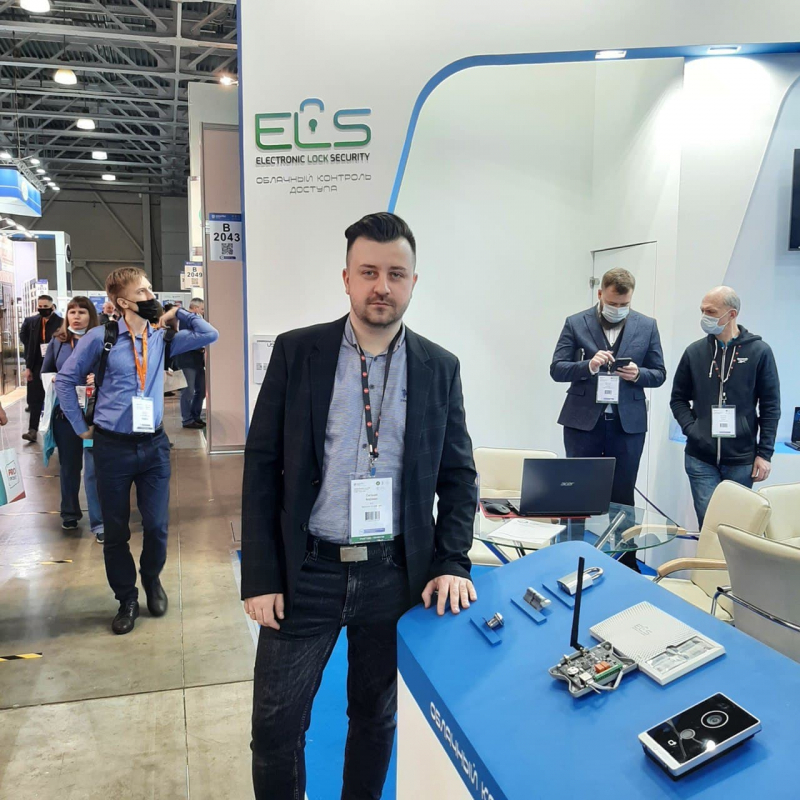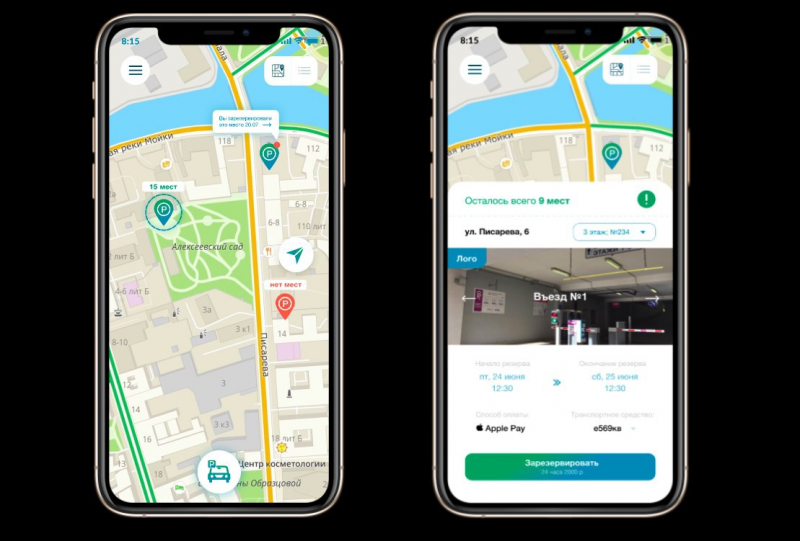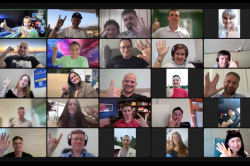How did you come up with your startup idea?
The idea grew out of our earlier work. In 2019, we wanted to develop a hands-free intercom. First, we built an MVP, gradually advanced its features, and then focused on automation of entrance systems: automatic road barriers, checkpoints, passage to residential areas, etc.
As for shared parking, we started this project in spring. Back then, we took part in Securika Moscow – one of the major exhibitions dedicated to security and fire protection equipment in Russia. There, we presented our idea, talked to our colleagues from other cities, and learned what problems modern developers face. Not only do they have to provide contactless access to their housing but also optimize their parking space. This prompted us to develop a new solution based on our platform, which we called getPark.

Evgeny Voronin at Securika Moscow. Photo courtesy of the subject
Who are your potential clients? Do you target developers only or a wider audience?
Car parking is a major problem in urban areas. There are more and more cars, yet not enough spaces for all of them in big cities. Many people experience parking anxiety when trying to find a spot. And that’s the problem we’re trying to solve with our app.
We make use of idle parking areas. Our platform serves as a kind of a marketplace, which people use to rent a parking space for a small window of time. With our app, they will no longer need to contact parking managers or get tickets. The work is still in progress, but we’ve already got a few deals with various developers around the country. I also believe that our solution might be of use for shopping malls, business centers, and hotels.
Could you tell us more about the market? Are there any competitors?
There are few competitors in Russia; the idea is much more popular in the West. However, we focus on the Russian market. Today’s market demonstrates different business models: for example, special chats with potential rentees.
A team from Moscow offers a rather promising solution. However, their project seems to be popular only in the capital because of their higher rates. We, in turn, strive for more cities and flexible pricing. Thanks to our partners, among which is True IP company, we got to find sales channels, validate our ideas faster, and receive feedback from our potential customers.

The GetPark app. Photo courtesy of the subject
In general, there are not many analogs in Russia. All current projects appeared within six months, so we can say that the market is only starting to grow, even though the sharing economy has been around for a while. Plus, we think users are familiar with the idea: carsharing, kicksharing, hotel & apartment booking, etc.
How can your users rent a parking space?
The process is similar to that of other sharing services, such as carsharing apps. You reserve a space using your card, then come to the place, open a barrier remotely, and park your car.
We want to make a flexible pricing policy, similar to taxi services. The cost will depend on demand, the number of parking lots, time of day, and some other factors. For instance, if demand is high during rush hour, then the price will be higher, too, while at night, on the contrary, parking will be cheaper. Therefore, the price tag may be different – somewhere between 50 to 150 rubles per hour, as we suppose.
What do you think about your participation in ITMO Accelerator?
I’d like to thank our mentor Kirill Kovalev. It was an insightful experience: we constantly communicated, discussed problems, and learned a lot from our colleagues. I think that one of the most important aspects of accelerators is networking.
Kirill has wide-ranging experience in European accelerators. He invited his colleagues from Russia and abroad to ITMO Accelerator, and we received valuable feedback.
What do you plan to do next?
We have several agreements with developers and partners, so in the next six months, we plan to launch shared parking in St. Petersburg, Moscow, Yekaterinburg, Chelyabinsk, Izhevsk, Ulyanovsk, and Minsk. Also, we’re thinking about the integration of our solution in a network of the city’s parking lots.





